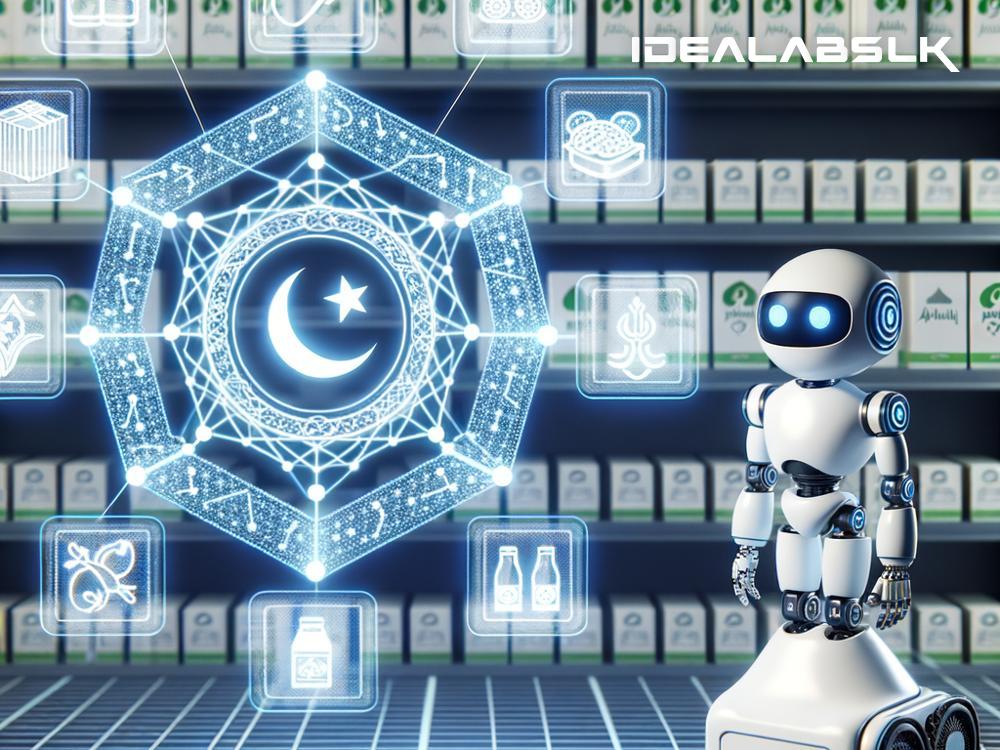How Blockchain and AI Ensure Authentic Halal Certification
In our global market, the demand for halal products is not only driven by Muslim consumers but also by others who see halal certification as a mark of quality assurance. However, the road to authentic halal certification is paved with challenges, including the risk of fraud and the difficulty of maintaining integrity throughout the supply chain. This is where modern technology steps in. The fusion of Blockchain and Artificial Intelligence (AI) is emerging as a beacon of hope for ensuring the authenticity of halal certification. Let's break down these complex technologies into simpler terms and explore how they are revolutionizing the halal certification process.
The Challenges of Halal Certification
Before diving into the technological solutions, it's essential to understand the challenges. Halal certification ensures that products, especially food items, comply with Islamic law. For a product to be certified halal, it must not contain any prohibited components such as pork or alcohol, and it must be processed in a specific way. The complexity arises due to the extensive supply chains that make it difficult to guarantee the integrity of halal products from the point of origin to the consumer's table. There's also the issue of fraudulent certifications and lack of transparency, which can undermine consumer trust.
The Role of Blockchain in Halal Certification
Blockchain is essentially a digital ledger technology where information is stored in a chain of blocks. Once recorded, the data in any given block cannot be altered without changing all subsequent blocks, which requires consensus from the network participants. This makes blockchain an incredibly secure and transparent way to store information.
In the context of halal certification, blockchain can be used to create an immutable record of the entire supply chain process. From the moment an animal is slaughtered, to the processing of food products, all the way to the delivery to retailers, every step can be recorded on a blockchain. This provides a tamper-proof digital trail that ensures the integrity of the product at every stage. Consumers can scan a QR code on the product packaging to trace its journey and verify its halal status, giving them peace of mind about the authenticity of their purchase.
Enhancing Transparency and Trust with AI
While blockchain provides a robust framework for traceability, AI brings intelligence and efficiency into the equation. AI algorithms can analyze vast amounts of data from blockchain records to detect anomalies that may indicate fraud or non-compliance with halal standards. For instance, if a product that claims to be halal has a supply chain record that shows an unexplained deviation in its journey, AI can flag this for further investigation.
AI can also be used to automate the certification process to some extent. By learning from data about compliant and non-compliant products, AI systems can help in pre-assessing products for halal certification, reducing the workload for human inspectors and speeding up the certification process.
A Practical Example
Imagine a beef supplier wants to certify their meat as halal. Through blockchain, every step of the beef's journey, from the slaughterhouse following halal practices to the packaging free of any non-halal contamination, is recorded and encrypted in the blockchain. AI tools periodically analyze this data, looking for any discrepancies that might suggest non-compliance. If the system flags an anomaly, inspectors can quickly take a closer look to determine if there's an issue.
At the consumer end, when you pick up a packet of beef with a halal certification logo, you can scan it using a smartphone app connected to the blockchain. Instantly, you'll see a comprehensive, tamper-proof record of its journey, confirming its halal status beyond any doubt.
The Future Is Transparent
The integration of blockchain and AI in halal certification is not just about adherence to religious guidelines; it's about fostering transparency, trust, and efficiency in the global food industry. As these technologies continue to evolve and gain acceptance, we can anticipate a future where consumers have unprecedented visibility into the origins and handling of not just halal products, but all food items. This move towards greater transparency can empower consumers, enhance product integrity, and build a more ethical global market.
In summary, the dynamic duo of blockchain and AI holds the promise of revolutionizing halal certification. By ensuring products are genuinely halal, these technologies help maintain the trust and faith of billions of consumers worldwide, marking a significant leap forward in the integrity of global food certification standards.

